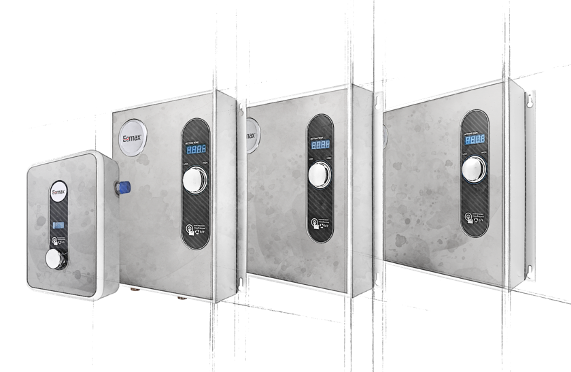Two of the biggest factors driving the sustainability movement in the United States are environmental impact and utility costs. Most of the country’s electricity today is produced by high-carbon emitting fossil fuels. This means that the more electricity one uses, the more greenhouse gases are produced, which are contributing to global climate change.
As demand for natural gas continues to grow, so too will the cost of electricity, especially as more utilities shift toward the energy source following the Environmental Protection Agency’s new rule on carbon emissions from power plants. By being able to limit the amount of electricity a building uses, home and business owners can limit their utility expenses.
One of the most common recommendations from the EPA has been to install Energy Star-approved appliances. While in many cases this is certainly a smart choice, but when it comes to water heaters, sticking with this approval system would lead to you ignoring one of the best options on the market – tankless electric water heaters.
Why Tankless is an Efficient Choice
Tankless electric water heaters are among the most efficient choices for residential, commercial and industrial settings for a number of reasons. According to the Department of Energy, hot-water heating is the second largest utility expense, making it an important place to start when improving energy efficiency.Tankless electric water heaters are 90 percent smaller than tank heaters, meaning they can be installed at the point of use, rather than in a utility closet or basement, offering a number of benefits that other solutions cannot offer. Because there is less distance for the hot water to travel to the faucet, you can get hot water faster than from a tank heater, this saves water because you do not need to wait for the water to heat up.
This also means that less heat is lost in transit. In fact, tankless electric water heaters can achieve a thermal efficiency rating of 99 percent, meaning that 99 percent of the electricity that goes into the warming process comes out as heat. This can help users obtain electricity savings of up to 50 percent on their water heating bill. Some Energy Star-approved hot water tanks only have an efficiency rating of 67 percent.
Looking For a Place Among the Stars
Despite the fact that tankless electric water heaters are so efficient and can reduce both utility bills and carbon footprints, the EPA has yet to give them an Energy Star-approval. There are two reasons why this is the case.The first has to do with what makes the tankless electric solution so efficient. Because they can be installed at the point of use, they are unlike the rest of the hot water heating solutions on the market in that they are not limited to being housed in the utility closet or basement. While this offers the aforementioned benefits, tankless electric water heaters are unlike many of their other, Energy Star-approved counterparts.
Eemax, along with many of its competitors within the industry teamed up to create a coalition to earn Energy Star certification. Unfortunately, while the EPA acknowledged the efficiency benefits of the tankless water heater solution, but did not grant approval, because it could not measure the efficiency benefits from the tank.
While this may seem like trivial qualification, it was not for the EPA. Unfortunately, the EPA measures water heater efficiency at the water heater, rather than the point of use, meaning that it could not use the figures it gathered from the tankless water heater to compare it to the other water heating solutions on the market.
Why to Make the Switch
Simply because the EPA is stuck in mud when it comes to properly measuring energy efficiency doesn’t mean that tankless water heaters cannot show impressive savings. By examining factors like average household’s water heating costs, compared to one’s that use tankless electric ones.These savings are impressive, but tankless electric water heaters are also an optimal choice because they are best equipped to adapt with the green movement taking place in the U.S. Renewable energy sources, such as solar and wind, are becoming increasingly popular, especially as states implement requirements for renewables. Most water tanks, and even other tankless solutions, require natural gas, meaning that despite their efficiency, they still burn fossil fuels. Because tankless electric water heaters only require electricity, they are the best equipped to accommodate the increase in renewable capacity.
While Energy Star has yet to approve this water heating solution, other groups have recognized the value of tankless electric water heaters. The U.S. Green Building Council’s LEED certification program awards certification’s to buildings that have various efficiency upgrades installed throughout. A tankless electric water heating system is approved under the LEED certification program.
Tankless electric water heaters prove time and time again to be among the most efficient water heating solutions on the market, making them an essential component of the country’s shift toward a more sustainable future.



